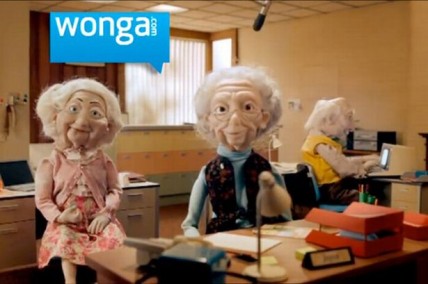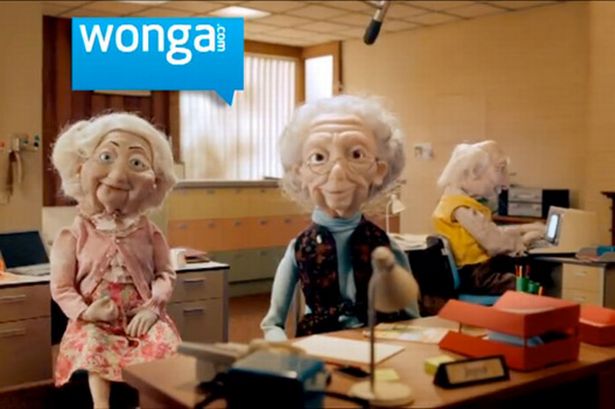
Still from a Wonga.com television advert
After coverage of payday loan company Wonga’s relationship with football, and then the Church, the spotlight has turned to the biomedical charity the Wellcome Trust.
The Wellcome Trust, if you don’t know it, is a large and powerful UK-based charity committed to improving human and animal health. They doall sorts of good work. They’re the UK’s largest funder of scientific research outside of the government, carrying a lot of clout beyond just what they do and do not fund. In many areas, where Wellcome goes, others follow. Londoners might also know their great museum opposite Euston station. It’s probably worth saying that although it has roots in the drug industry, that’s largely a matter of history (and their history’s reasonably interesting, if you like that sort of thing). The funds for their various activities come from investing their huge endowment of £14.5 billion. One of the things they currently invest in is Wonga.
Stella Creasy raised this a couple of years ago, but it received very little coverage. It’ll be interesting to see if the new story in the Guardian this weekend has more traction. As the Guardian reports, a member of Trust staff who played a key role in persuading the charity to invest £73m in Wonga quit for a new post there just four months later. She’s now in charge of Wonga’s plans for global expansion, and head of Wonga in India, recently touring the country promoting the company to some of the world’s poorest people.
When Naomi Klein took the Gates Foundation to task over oil and gas in May, I had a bit of a look around Wellcome. I checked the ethics statements in its investment policy (you want the “stewardship” pdf) and – interestingly I thought – noticed they avoid investment in the tobacco industry. Which makes sense, perhaps, for a medical charity. It is true of several universities too. But if you make that one ethical decision, why stop? As Klein stresses, the fossil fuel industry has massive health impacts (and Wellcome agrees) and it doesn’t take a Wellcome-funded scientist to tell you that there are links to poverty and health (but such people exist, if you want them).
The Trust will get a new director, Jeremy Farrar, on the first of October. His predecessor – Mark Walport, who’s since moved on to the post of UK Government Chief Scientific Adviser – may have brushed off Creasy’s concerns, but perhaps Farrar will have a different take on this issue.
I’d also be interested to see if the science press, not just the Guardian business beat, pick up on this.
And it’ll be interesting to see how long the Church of England will be able to continue the line that it’s “completely unrealistic” to think they might disinvest from Shell, HSBC, BP, Rio Tinto et al too.




